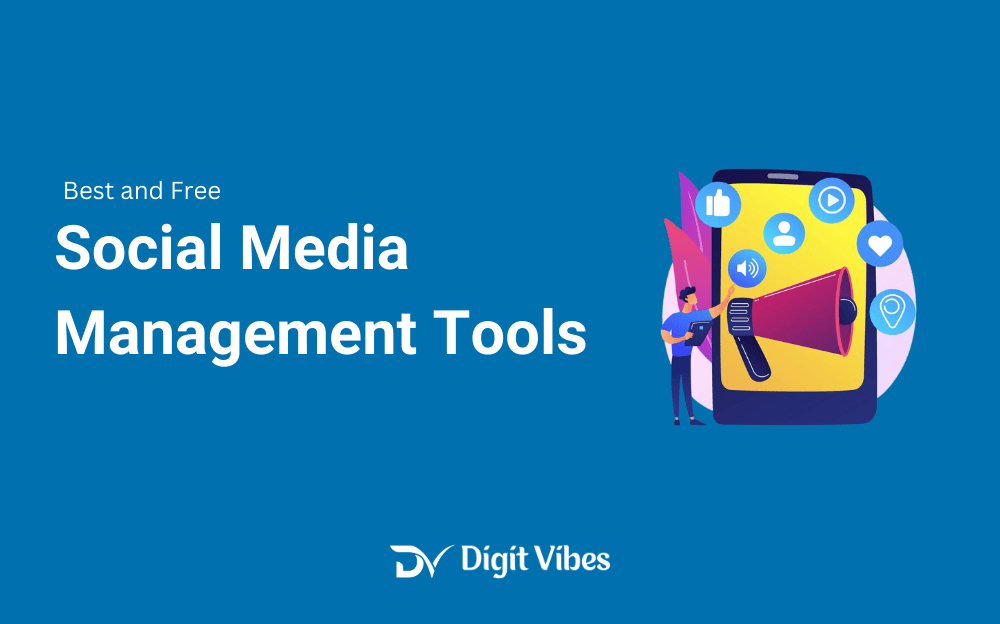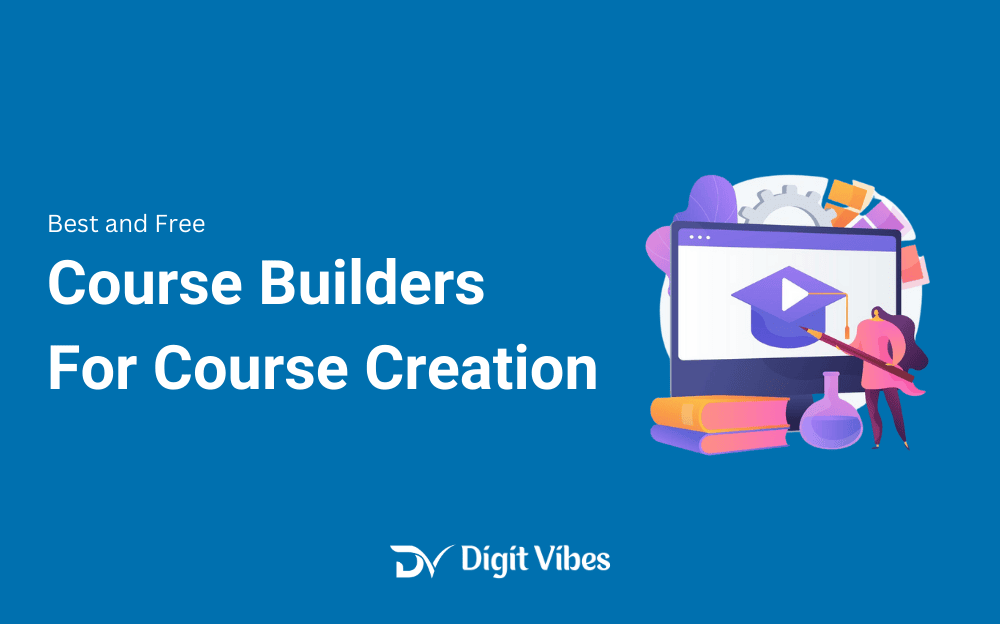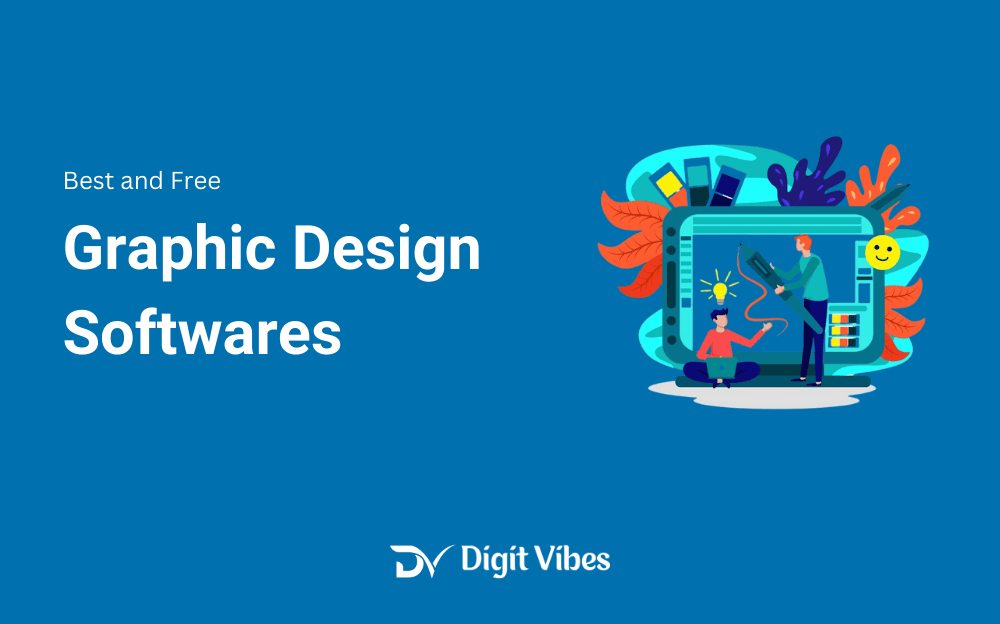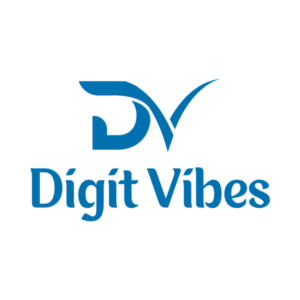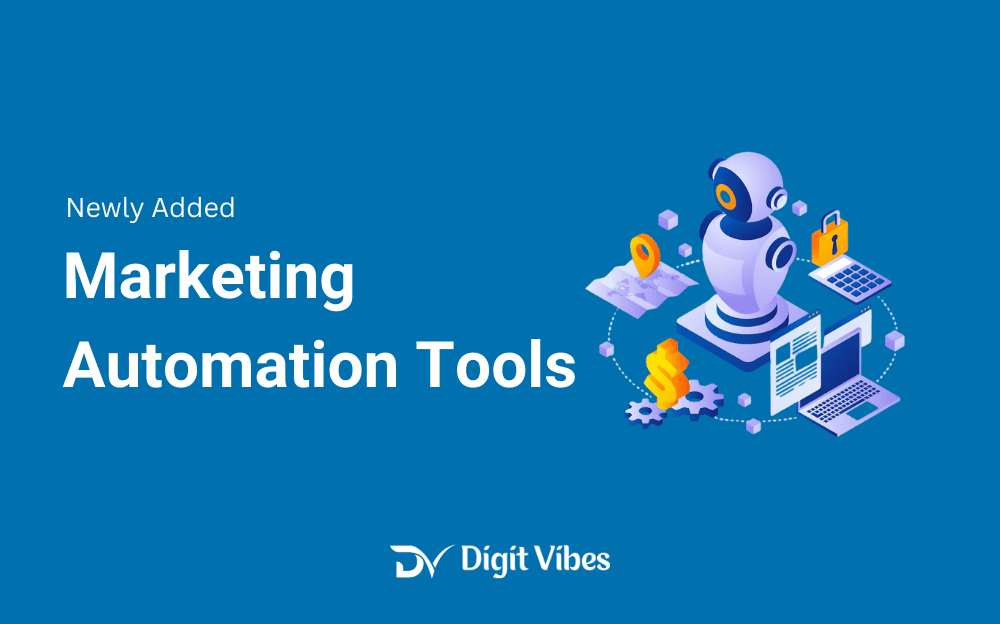
Choosing the right marketing automation software can significantly impact your business success. With so many options out there, it’s important to find the one that best suits your needs.
Having personally used many of these tools, I’ve put together a list of the best marketing automation software for 2024. This list includes a simple overview of each tool’s features, benefits, and any potential downsides.
By the end of this article, you’ll know which marketing automation software is the right fit to help you streamline your campaigns, engage customers, and grow your business.
Top Marketing Automation Software in 2024
The best marketing automation software offers a powerful blend of advanced features, seamless integrations, and user-friendly interfaces, empowering companies to automate repetitive tasks, nurture leads, and optimize their marketing efforts.
Here’s a look at the top marketing automation software that stands out in 2024:
| S.No | Software | Key Features | Best For |
|---|---|---|---|
| 1 | HubSpot | Email marketing, CRM integration, lead tracking | Businesses of all sizes |
| 2 | ActiveCampaign | Automation workflows, CRM integration, machine learning | Small to medium businesses |
| 3 | Marketo Engage | Lead management, account-based marketing, analytics | Enterprise-level businesses |
| 4 | Salesforce | Lead nurturing, CRM integration, AI-driven insights | B2B marketing teams |
| 5 | Mailchimp | Email marketing, customer journeys, segmentation | E-commerce and small businesses |
| 6 | GetResponse | Email marketing, landing pages, webinars | Small to medium businesses |
| 7 | Sendinblue | Email and SMS marketing, chat, automation | Small to medium-sized businesses |
| 8 | Omnisend | Multi-channel marketing, automation workflows | E-commerce businesses |
Now, let’s look into the details of each marketing automation software:
1. HubSpot
HubSpot is a leading marketing, sales, and service software designed to help businesses grow by offering a comprehensive suite of tools that streamline various aspects of customer relationship management (CRM).
Whether you’re a small startup or a large enterprise, HubSpot’s modular approach allows you to pick and choose the tools that best fit your needs. You can start with the free CRM and gradually add on paid features as your business grows.
HubSpot’s user-friendly interface and powerful integration capabilities make it a favorite among marketers and sales teams looking to boost efficiency and drive results.
Pros and Cons:
Pricing:
- Free CRM: Basic features at no cost
- Starter Plan: Starts at $30/month (includes marketing, sales, and service tools)
- Professional Plan: Starts at $1,600/month (advanced features, more contacts)
- Enterprise Plan: Starts at $5,000/month (full suite of tools, customizations.
2. ActiveCampaign
ActiveCampaign is a robust marketing automation and CRM platform designed to help businesses enhance their customer engagement and streamline their sales processes.
Its primary goal is to support businesses in creating personalized and effective communication strategies, allowing them to build meaningful relationships with their customers and drive growth through data-driven insights.
ActiveCampaign’s scalable solutions can be customized to fit various business needs, making it a versatile choice for growing companies looking to enhance their marketing and sales efforts.
Pros and Cons:
Pricing:
- Lite Plan: Starts at $29/month (basic email marketing features)
- Plus Plan: Starts at $49/month (includes CRM and automation tools)
- Professional Plan: Starts at $149/month (advanced features and custom reporting)
- Enterprise Plan: Custom pricing (tailored solutions and dedicated support)
3. Marketo Engage
Marketo Engage is a part of Adobe Experience Cloud, a leading marketing automation platform designed to help businesses drive growth through advanced marketing strategies and personalized customer experiences
Marketo Engage provides a comprehensive suite of tools for managing marketing campaigns, nurturing leads, and measuring performance. With a strong focus on data-driven marketing and customer engagement, it caters to enterprises looking to enhance their marketing efforts and achieve a higher return on investment.
The platform offers a wide range of features including email marketing, lead scoring, and account-based marketing, which help in targeting and engaging potential customers effectively. Its integration with Adobe’s suite of tools enhances its analytics and reporting capabilities.
Pros and Cons:
Pricing:
- Basic Plan: Pricing available on request (includes core marketing automation features)
- Standard Plan: Pricing available on request (additional features and customization options)
- Advanced Plan: Pricing available on request (includes advanced analytics, integrations, and support)
- Enterprise Plan: Custom pricing (tailored solutions and enterprise-level support)
4. Salesforce
Salesforce is a leading cloud-based CRM platform renowned for its comprehensive suite of tools designed to enhance customer relationship management and drive business growth.
Its core CRM functionalities include lead and opportunity management, sales forecasting, and customer data tracking, which help businesses streamline their sales processes and improve customer interactions.
The platform also offers advanced marketing automation tools through Salesforce Marketing Cloud, which supports email marketing, social media engagement, and personalized content delivery. Salesforce is well known for its scalability and flexibility, making it suitable for businesses of all sizes.
Pros and Cons:
Pricing:
- Sales Cloud Essentials: Starts at $25/user/month (basic CRM features for small teams)
- Sales Cloud Professional: Starts at $75/user/month (advanced sales tools and customization)
- Sales Cloud Enterprise: Starts at $150/user/month (full suite of CRM features and automation)
- Sales Cloud Unlimited: Starts at $300/user/month (includes premium support, customization, and unlimited features).
5. Mailchimp
Mailchimp is a popular email marketing platform that provides a range of tools designed to help businesses create, manage, and optimize their email campaigns.
Its user-friendly interface and robust features make it a favorite among small to medium-sized businesses looking to improve their marketing efforts and connect with their audience more effectively.
Mailchimp offers a variety of features that make it a versatile tool for email marketing. Its email campaign builder includes customizable templates, drag-and-drop functionality, and automation capabilities, allowing users to create professional-looking emails and automated workflows with ease.
Pros and Cons:
Pricing:
- Free Plan: Available for up to 500 contacts and 3,500 emails per month (basic features)
- Essentials Plan: Starts at $13/month (includes additional features for up to 50,000 contacts)
- Standard Plan: Starts at $20/month (advanced features such as retargeting and custom templates)
- Premium Plan: Starts at $350/month (includes advanced analytics, and unlimited features)
6. GetResponse
GetResponse is an all-in-one digital marketing platform that provides tools for email marketing, automation, landing pages, and customer relationship management (CRM).
Its integrated suite of features enables users to streamline their marketing processes, from creating email campaigns to managing sales funnels.
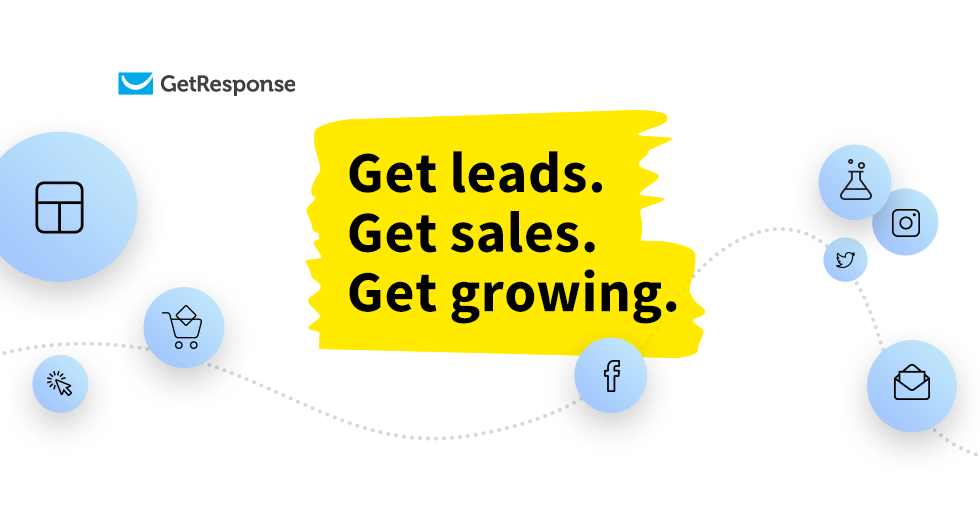
GetResponse is known for its robust email marketing capabilities, which include customizable templates, a drag-and-drop email builder, and advanced automation workflows. Users can create automated email sequences based on customer behavior, preferences, and interactions, enhancing the relevance and effectiveness of their campaigns.
Pros and Cons:
Pricing:
- Basic Plan: Starts at $15/month (includes essential email marketing features)
- Plus Plan: Starts at $49/month (additional automation tools and CRM features)
- Professional Plan: Starts at $99/month (advanced features such as webinars and premium support)
- Max Plan: Custom pricing (tailored solutions for large enterprises and high-volume users)
7. Sendinblue
Sendinblue is a versatile digital marketing platform that offers tools for email marketing, SMS campaigns, marketing automation, and customer relationship management (CRM).
Sendinblue provides a range of features tailored to enhance marketing strategies. Its email marketing tools include customizable templates, a drag-and-drop editor, and advanced automation capabilities, allowing users to create targeted email campaigns based on customer behavior and interactions.
The platform’s user-friendly interface and scalable solutions make it suitable for businesses of all sizes, from small startups to large enterprises.
Pros and Cons:
Pricing:
- Free Plan: Includes up to 300 emails per day and unlimited contacts (basic features and limited support)
- Lite Plan: Starts at $25/month (includes more emails per month, advanced email features)
- Essential Plan: Starts at $39/month (additional features such as no Sendinblue logo and advanced reporting)
- Premium Plan: Starts at $66/month (includes advanced automation, landing pages, and priority support)
- Enterprise Plan: Custom pricing (tailored solutions for large businesses with high-volume needs)
8. Omnisend
Omnisend is an all-in-one marketing automation platform tailored for e-commerce businesses, offering tools for email marketing, SMS campaigns, and customer engagement.
It is known for its robust email and SMS marketing capabilities, allowing users to design and execute campaigns using a variety of customizable templates and automation workflows.
The platform’s advanced segmentation features enable businesses to target specific customer groups based on behavior, preferences, and purchase history. Omnisend also includes tools for creating landing pages, forms, and pop-ups to capture leads and grow email lists.
Pros and Cons:
Pricing:
- Free Plan: Includes up to 500 emails per month and basic features (limited automation and support)
- Standard Plan: Starts at $16/month (includes more emails, automation features, and SMS capabilities)
- Pro Plan: Starts at $59/month (advanced features such as advanced segmentation, reporting, and priority support)
- Enterprise Plan: Custom pricing (tailored solutions and dedicated support for large enterprises and high-volume needs)
This breakdown offers a detailed overview of each software’s strengths, weaknesses, and pricing, assisting you in selecting the ideal marketing automation tool.
Our Opinion:
Pick the Suitable Software
I hope everything is clear now. I’ve shared my insights on the top 8 marketing automation tools. Let’s dive in:
The top 8 marketing automation tools, including Mailchimp, HubSpot, Marketo Engage, ActiveCampaign, GetResponse, Sendinblue, Omnisend, and Salesforce, each bring distinct features to the table.
Mailchimp shines with its user-friendly email marketing and automation tools, perfect for small to medium-sized businesses. HubSpot offers an extensive all-in-one solution with CRM integration and advanced marketing automation, ideal for businesses seeking a comprehensive platform. Marketo Engage is favored for its robust marketing automation and analytics capabilities, suited for larger enterprises with complex needs.
ActiveCampaign stands out with its powerful automation workflows and CRM functionalities, offering a versatile solution for growing businesses. GetResponse provides a mix of email marketing, automation, and CRM, with additional features like landing page creation. Sendinblue excels in integrating email and SMS marketing, making it a strong choice for multi-channel campaigns.
Omnisend is tailored for e-commerce businesses, offering advanced email and SMS marketing automation. Salesforce, with its extensive CRM features and advanced marketing tools, is ideal for enterprises needing a scalable and customizable solution.
Each tool has its unique strengths, and understanding their capabilities can help you select the best fit for your marketing needs.
Choosing the right tool can significantly enhance your marketing efforts and drive better results.
FAQs: Best Marketing Automation 2024
What are the top marketing automation tools for 2024?
The top marketing automation tools for 2024 include Mailchimp, HubSpot, Marketo Engage, ActiveCampaign, GetResponse, Sendinblue, Omnisend, and Salesforce. Each of these tools offers a range of features designed to help businesses streamline their marketing efforts and improve customer engagement.
How do I choose the best marketing automation tool for my business?
Choosing the best marketing automation tool depends on your specific needs and goals. Consider factors such as the size of your business, your marketing objectives, budget, and the features you require (e.g., email marketing, CRM integration, SMS campaigns).
Are there any marketing automation tools with free plans or trials?
Yes, many marketing automation tools offer free plans or trials. For instance:
Mailchimp offers a free plan with basic features.
GetResponse provides a 30-day free trial.
Sendinblue includes a free plan with limited features.
Omnisend offers a free plan for basic email marketing.
Can I integrate marketing automation tools with my existing CRM or e-commerce platform?
Yes, many marketing automation tools offer integrations with popular CRM and e-commerce platforms. For example:
Mailchimp integrates with Shopify, WooCommerce, and Salesforce.
HubSpot offers integrations with various CRM systems and e-commerce platforms.
Salesforce integrates with numerous third-party applications and services.
Can I switch marketing automation tools if my needs change?
Yes, you can switch tools if your needs evolve. Many platforms offer data export options and migration assistance to help you transition smoothly. When considering a switch, evaluate your new tool’s features, pricing, and compatibility with your current systems to ensure a seamless transition.
How frequently should I review and adjust my marketing automation strategies?
A good practice is to evaluate your campaigns and automation workflows quarterly or biannually to ensure they are still effective and aligned with your marketing goals.
Wrap-Up
Conclusion: Marketing Automation Tools
Marketing automation tools have become essential for businesses aiming to streamline their marketing efforts, enhance customer engagement, and drive growth. As we’ve explored, each tool offers unique features and capabilities, catering to different needs and business sizes.
Choosing the right marketing automation tool involves assessing your business requirements, including feature needs, budget, and scalability.
Whether you prioritize advanced segmentation, multi-channel marketing, or seamless integration with existing systems, understanding each tool’s strengths and limitations can help you make an informed decision.
Ultimately, the right marketing automation tool can significantly enhance your marketing efforts, leading to improved efficiency, higher engagement, and increased ROI. Evaluate your options carefully, and choose a solution that aligns with your goals and supports your growth journey.


